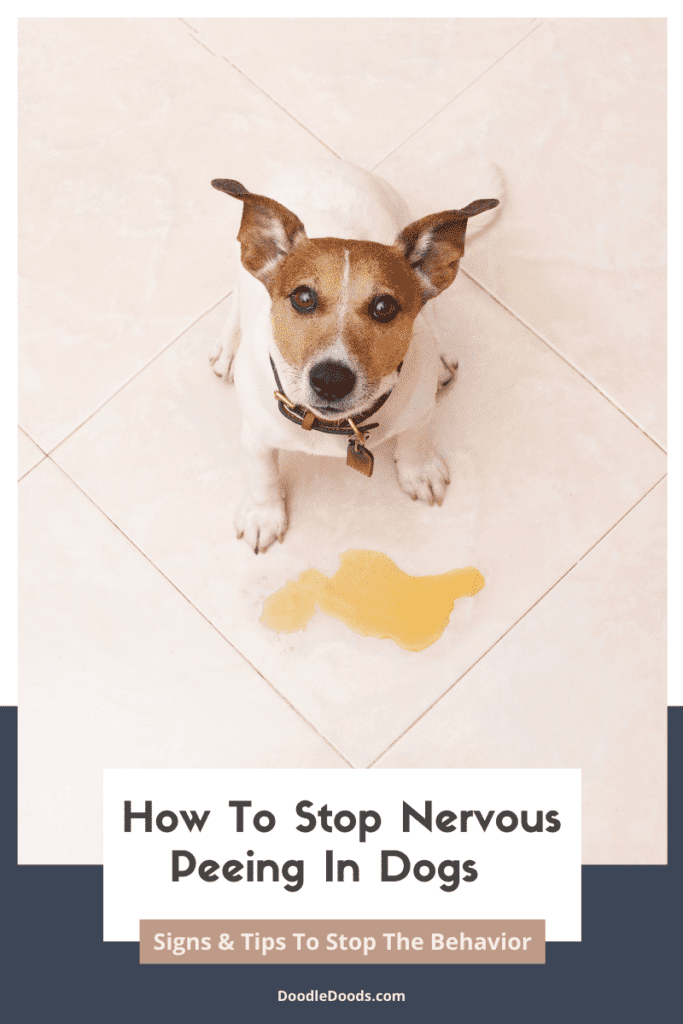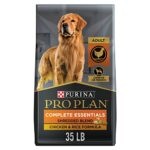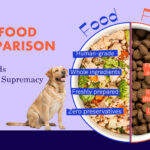To stop a puppy from peeing when excited, ignore the behavior and calmly greet the puppy. Gradually increase interactions to acclimatise the puppy to excitement.
Managing a puppy’s excitement-induced peeing requires patience and consistency. This common challenge for new pet parents often stems from an underdeveloped urinary system and overstimulation. Implementing effective training techniques can help mitigate these accidents. Caretakers must strive for a balance of gentle discipline and positive reinforcement, focusing on creating a calm and reassuring environment.
Addressing the issue promptly enhances your pup’s confidence and supports healthy behavioral development. Our guide provides straightforward strategies to help your furry friend overcome this phase with minimal fuss, ensuring a happier coexistence. Explore proven tips for managing your pup’s excitement and promoting good habits that will last a lifetime.
The Science Of Excitement Urination In Puppies
Discover why your puppy may be peeing from excitement and how to manage it. Understanding the cause helps in finding solutions.
Link Between Emotions And Bladder Control
Puppies often lose bladder control when excited. Emotions activate the nervous system differently in young dogs. Their excitement can trigger an instantaneous release of urine.
- Bladder signals may fail to reach the brain in time.
- Strong emotions can overwhelm a puppy’s physical control.
Puppy Development And Urinary Tract Maturity
Puppies grow and develop at a rapid pace. Their urinary system maturity is vital for bladder control.
| Age | Development Stage |
|---|---|
| 8-12 weeks | Beginning to learn bladder control |
| 3-6 months | Increase in bladder capacity |
| 6+ months | Better control over urination |
Patience and positive training lead to better control over time. Remember, each puppy is unique and develops at its own pace.
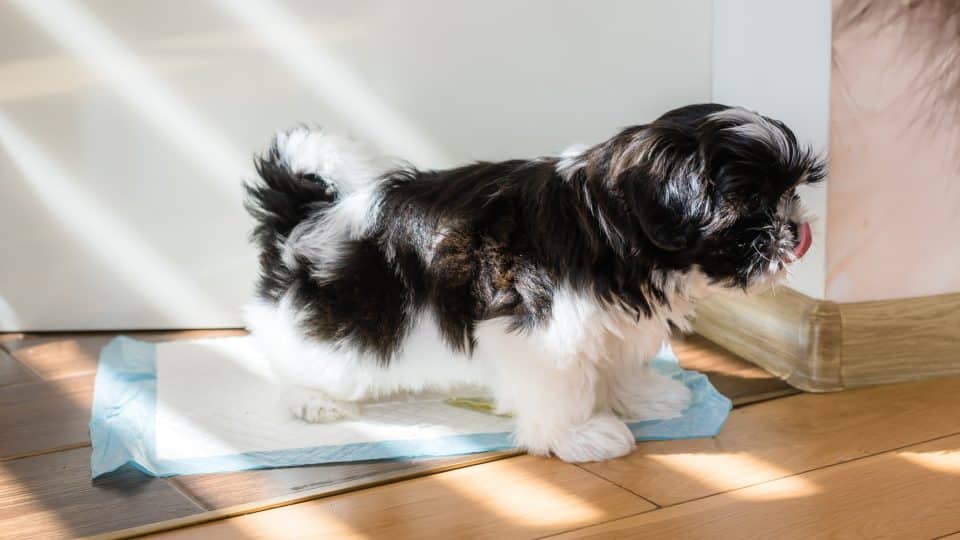
Credit: www.rover.com
Identifying Excitement Urination
Discovering why a puppy pees during moments of high energy is a common concern among new pet owners. This behavior, known as excitement urination, can be frustrating. Understanding and identifying it is the first step towards finding a solution. Let’s dive into the key indicators and the usual scenarios that trigger this reaction in puppies.
Common Situations Triggering The Behavior
Different puppies may react to various situations with excitement urination. Here are typical examples:
- Greeting people: When family or guests arrive.
- Playtime: Engaging in fun activities.
- Attention: Receiving affection or praise.
- Changes in Environment: New sights, sounds, or smells.
Distinguishing Excitement From Other Forms Of Peeing
It’s important not to confuse excitement urination with other types.
| Type | Behavior |
|---|---|
| Excitement | Occurs during moments of high joy or arousal. |
| Submission | Associated with appeasing gestures, like lowered ears. |
| Marking | Typical in adulthood, to claim territory. |
| Medical | Could indicate a health issue. Vet advice required. |
Effective House Training Techniques
Welcome to the world of effective house training where patience meets practicality. House training a new puppy can be as challenging as it is rewarding. Specifically, stopping a puppy from peeing when excited requires tailored techniques and a clear understanding of canine behavior. Below you’ll find tried-and-true strategies to ensure your furry friend learns where and when it’s appropriate to relieve itself.
Building A Consistent Routine
Consistency is key to any form of training. Your puppy thrives on routine, which helps foster a sense of security and expectation.
- Designate specific times for your puppy to eat, play, and go outside for bathroom breaks.
- Keep bathroom breaks frequent – taking them out every 1-2 hours during the initial stages of house training can prevent accidents.
- Monitor water intake and ensure controlled access to prevent excessive urination.
- Establish a specific spot outside where the puppy is encouraged to pee. This builds an association with that location.
- Always accompany your puppy outdoors to reinforce the behavior you wish to see through guidance and praise.
Positive Reinforcement Strategies
Positive reinforcement is a cornerstone of dog training. It encourages desired behavior without causing fear or aggression.
- Immediately after your puppy successfully pees outside, reward them with treats and affection.
- Verbal praise is remarkably effective. Use a cheerful and enthusiastic tone to convey approval.
- Be patient—avoid showing frustration or anger if your puppy makes a mistake. This could lead to anxiety, which might exacerbate the problem.
- If an accident happens indoors, clean it thoroughly to remove the scent and discourage repeat offenses.
- Remember, training takes time. Celebrate small victories and remain consistent with your positive reinforcement.
Controlling The Environment
Controlling the Environment plays a crucial role in training your puppy. A well-managed setting can prevent accidents and help your furry friend understand appropriate behavior. Here we’ll discuss techniques to stop puppies from peeing when excited through environment control.
Managing Greetings And Play Sessions
To reduce excitement during interactions, consider the following:
- Limit the number of people greeting your puppy at once.
- Encourage gentle pats instead of energetic pets.
- Use treats to reward calm behavior.
- Keep sessions short and sweet to avoid overstimulation.
- Encourage playtime in a designated area to associate it with activity.
Creating A Calm Home Atmosphere
A peaceful home environment can prevent excitement peeing. Try these tips:
| Strategy | Benefit |
|---|---|
| Soft music or white noise | Reduces stress and masks alarming sounds |
| Steady routine | Promotes security and predictability |
| Quiet zones | Provides safe spaces for retreat |
| Controlled play | Limits over-excitement |
| Regular potty breaks | Prevents accidents |
With consistency and these strategies, your puppy will learn to stay calm and pee only when appropriate.
Crate Training As A Solution
Welcome to the world of puppy parenting! Puppies, with their boundless energy and joy, can sometimes get so excited that they pee a little. While this is completely normal, it’s also something we can help them control. Crate training offers a structured approach to tackle this issue. Let’s delve into how crate training can be an effective solution to manage your puppy’s excited peeing.
Benefits Of Crate Training
Crate training can be a game-changer in your puppy’s life. Here’s why:
- Safety: A crate serves as a personal, safe space for your puppy.
- Reduces Anxiety: Teaches them to calm down and relax.
- Establishes Routine: Helps create a bathroom schedule.
- Prevents Accidents: Limits the space where your puppy can pee.
- Portable Home: Provides a familiar environment, even when traveling.
Introducing The Crate Gradually
Introduce the crate to your puppy slowly to ensure it’s a positive experience:
- Place the crate in a common area of your home.
- Keep the door open and let your puppy explore it on their own terms.
- Lay down comfortable bedding and include a favorite toy.
- Encourage them by placing treats inside the crate.
- Start with short periods and gradually increase the time.
Remain consistent and patient. In time, your puppy will view the crate as its personal haven, reducing anxiety-induced accidents significantly.

Proactive Bladder Management
Training your puppy to control their bladder can be challenging,
but taking a proactive stance can make all the difference.
Excitable peeing is a common issue, but with patience and consistent practices,
you and your pup can overcome this hurdle together. Tackle this adorable yet frustrating behavior with these strategies:
Scheduled Potty Breaks
Consistency is key to successful potty training. Setting regular intervals
for your puppy to relieve themselves is crucial. Use these tips to create an effective schedule:
- Start the day with a bathroom trip to set a positive tone.
- After meals, take your puppy outside to help them associate eating with potty time.
- Before bedtime, offer another chance to go to avoid nighttime accidents.
- Remember playtime and naps often result in bathroom needs.
A potty calendar can help track progress and identify patterns in bathroom habits.
Diet And Hydration Considerations
What your puppy eats and drinks greatly affects their bladder control.
Proper diet and hydration are essential for a healthy pup and manageable potty times. Note these points:
| Diet Tips | Hydration Hints |
|---|---|
| Feed high-quality food to ensure easy digestion. | Monitor water intake throughout the day. |
| Avoid filler-heavy meals that increase waste. | Provide constant access to clean water. |
| Stick to a scheduled feeding routine. | Limit water before bedtime, but do not restrict completely. |
Monitor your puppy for dietary sensitivities that can impact bladder function.
Developing Social Skills
Developing social skills in your furry friend is as crucial as training them on basic commands. Skills such as patience, calmness, and proper behavior when meeting new people or pets can significantly reduce instances of excitement-induced accidents. Start by setting the right scene to encourage learning and prevent your puppy from peeing when excited. Read on for valuable tips on managing encounters with new faces and pets, and how to foster serene interactions.
Dealing With New Faces And Pets
Meeting new people or animals is often a wild card experience for puppies. Their excitement can sometimes cause unwanted behaviors. Here’s a strategy to help them cope:
- Introduction zone: Choose a quiet area to introduce your puppy to new friends.
- Leash guidance: Keep your puppy on a leash to control their movement and excitement.
- Short greetings: Allow only brief interactions at first to prevent overwhelm.
Practice these steps consistently, and your puppy will learn to meet others without getting overly excited.
 credit: www.amazon.com
credit: www.amazon.com
Teaching Calm Interactions
Instilling a sense of tranquility during greetings reduces the odds of excitement peeing. Use these techniques:
- Stay relaxed: Your puppy can sense your energy, so stay composed during introductions.
- Reward calmness: Treats and praises work wonders when your puppy keeps their cool.
- Practice makes perfect: Regularly expose your pup to social situations in controlled environments.
Reinforce these practices and watch as your puppy masters seamless social skills, making every introduction a breeze and accident-free.
Physical Exercise And Mental Stimulation As Preventatives
Excited puppies often can’t control their bladders. Proper physical exercise and mental stimulation keep puppies happy and reduce accidents. Puppies need an outlet for their energy. A tired puppy is less likely to pee from excitement.
Balancing Playtime And Rest
Playtime is crucial for a puppy’s development. Balance is key. Too much play leads to overexcitement. Not enough results in excess energy. Both can cause excited peeing. Aim for a mix of active play and calm rest periods throughout the day.
Regular walks, fetch, and gentle tug-of-war games are great. After play, guide your puppy to a quiet spot for a nap. This routine helps them learn to regulate their excitement and bladder control.
Interactive Toys To Focus Energy
Interactive toys are perfect for a mental workout. They help focus your puppy’s energy on something other than excitement. This can prevent peeing out of happiness.
- Puzzle toys that dispense treats
- Chew toys to keep them busy
- Training apps with games for dogs
These toys keep your puppy’s brain engaged. They’re learning and having fun. Excitement peeing becomes less of a problem as they grow.
Professional Help When Needed
Professional help when needed sometimes proves crucial in correcting your puppy’s behavior. Dogs, like people, exhibit unique personalities and challenges. The process of teaching your puppy not to pee when excited can test your patience. At certain points, you may find that home training isn’t enough. This is when professional help becomes essential. A qualified dog trainer or a behaviorist brings expertise to your puppy’s issue. Let’s explore when and what to seek in professional dog training.
When To Seek A Trainer
Notice persistent peeing despite consistent home training? It’s time to consult with a professional trainer. Signs that call for professional input include the following:
- Failed home training attempts
- Prolonged peeing issues
- Signs of stress or anxiety
Timely intervention from a trainer can prevent future issues. Prioritise your pup’s behavioural health just as you would their physical well-being.
What To Expect From Behavioural Therapy
Behavioral therapy with a pro can transform your puppy’s habits. Expect a mix of the following techniques and benefits:
| Technique | Benefit |
|---|---|
| Positive Reinforcement | Encourages good behavior without fear |
| Consistency Training | Builds reliable behavior patterns |
| Desensitization | Reduces over-excitement and stress responses |
A behaviorist will tailor therapy to your puppy’s needs. Crafted plans yield quicker and more effective results. With dedication and the right help, your puppy will soon greet you with joy, not puddles!
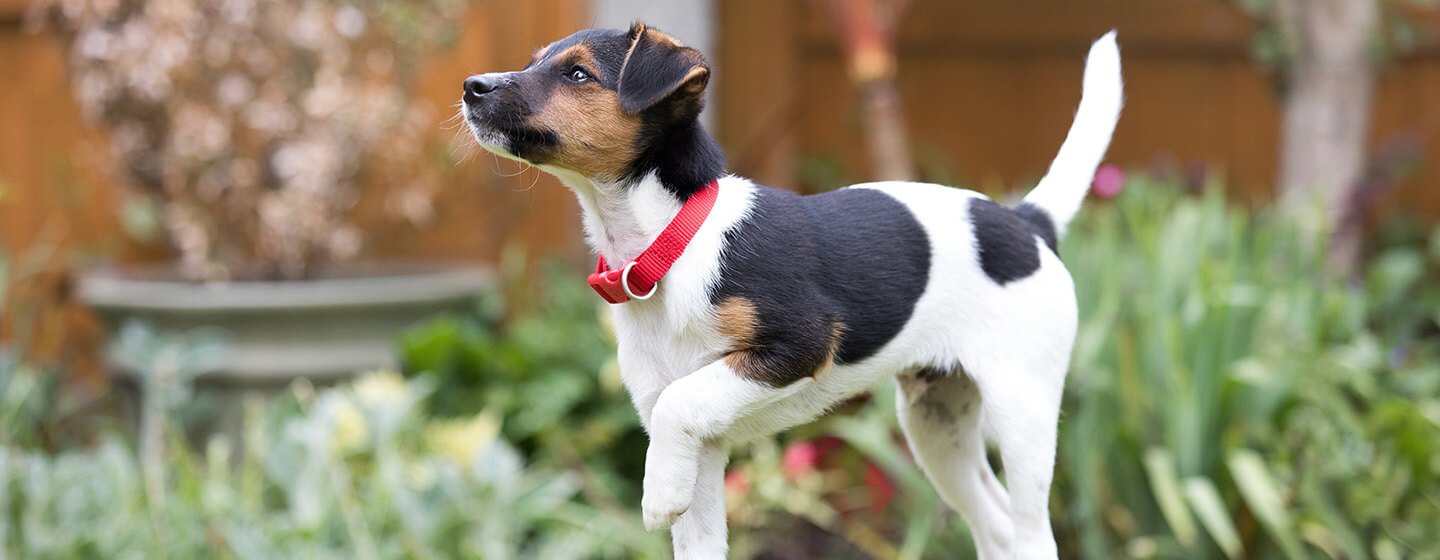
Credit: www.purina.co.uk
Maintaining Patience And Consistency
When training a puppy, remember that patience and consistency are your best tools. Young dogs learn through repetition and positive reinforcement. Keep up with consistent training and your puppy will learn to control their excitement.
Setting Realistic Expectations
Understanding your puppy’s development is crucial. Expecting perfection overnight is unrealistic. Puppies naturally get excited and may have accidents. Recognize that this behavior is normal and address it with patience.
- Potty training takes time. Accept that there will be accidents.
- Steady progress is more important than immediate results.
Dealing With Setbacks Positively
Setbacks are part of the training process. React with kindness, not frustration. Redirect your puppy gently to the appropriate potty area. Reassure and encourage them after each attempt, successful or not. Consistency in your reactions helps them learn appropriate behavior.
- Clean accidents thoroughly to avoid marking behavior.
- Reward calm behavior to discourage overexcitement.
Frequently Asked Questions On How Do You Stop A Puppy From Peeing When Excited
How Do I Train My Puppy Not To Pee When Excited?
To train your puppy not to pee when excited, consistently take them to the same potty spot. Use positive reinforcement with treats and praise for proper toileting. Gradually expose them to the exciting stimuli and reward calm behavior. Consistency and patience are key to success.
Do Puppies Outgrow Peeing When Excited?
Many puppies outgrow peeing when excited as they mature and gain better bladder control. Consistent training can also help manage this behavior.
Should I Punish My Dog For Excited Peeing?
No, you shouldn’t punish your dog for excited peeing. This behavior is often involuntary and can stem from overstimulation or submissiveness. Instead, calmly greet your dog and give it time to settle down. Positive reinforcement and training can help manage this issue effectively.
How Long Does Submissive Urination Last?
Submissive urination typically resolves as a puppy matures, often by the age of 12 months. Positive reinforcement training can help reduce the behaviour more quickly.
Conclusion
Training your puppy to control their excited peeing is a journey of patience and consistency. Adopt the right approach with positive reinforcement and calm greetings. Remember to stay composed, reward dry greetings, and manage excitement levels. With time, your furry friend will learn and the surprise puddles will be a thing of the past.

